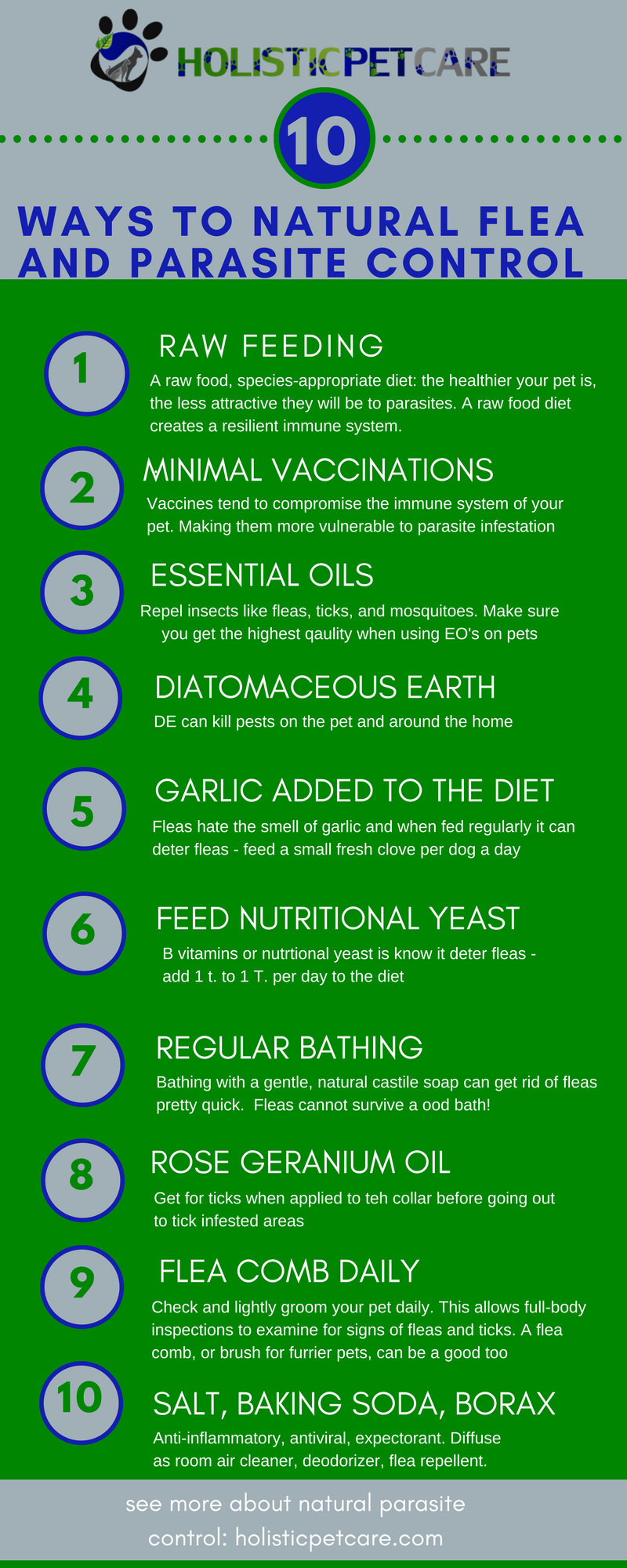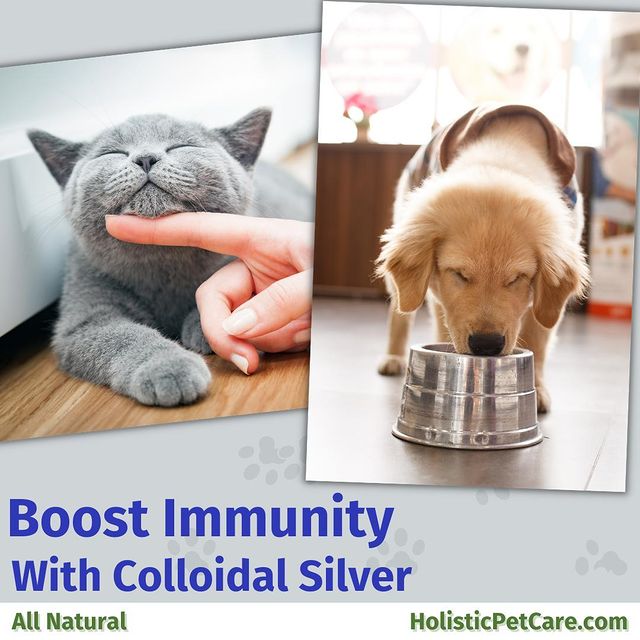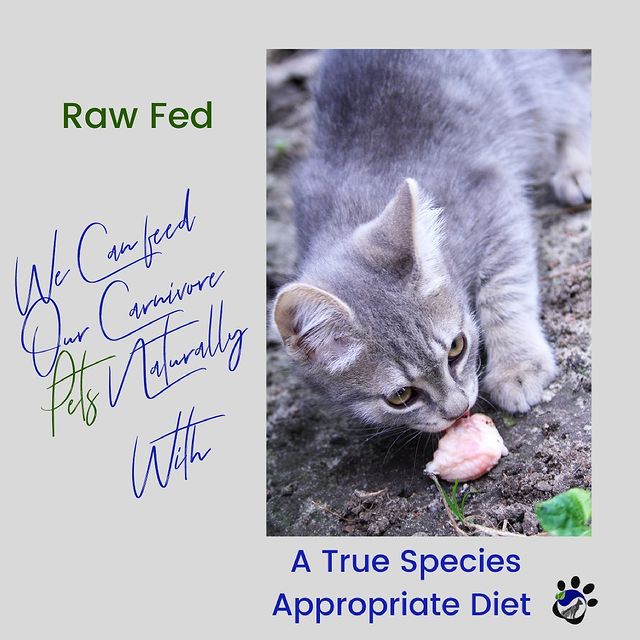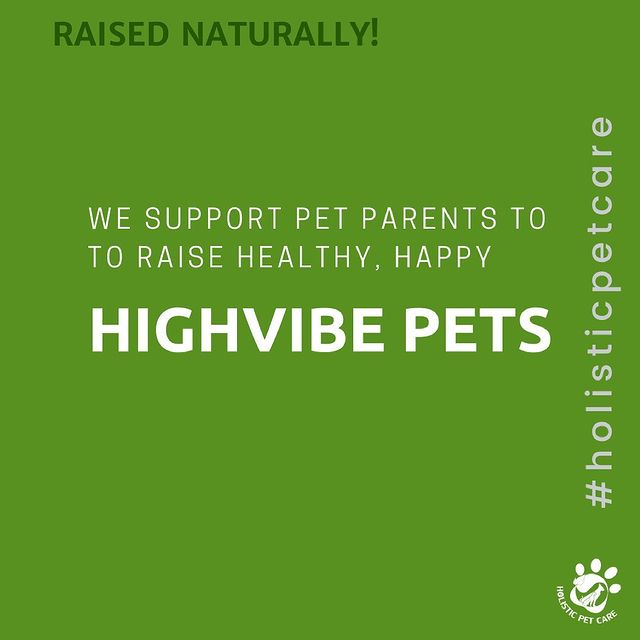Dangers of Conventional Treatments: Pests & Parasites
Posted by RJewel on Nov 04, 2016
Let's explore the pros and cons of conventional chemical treatment for pet pests and parasites, versus the naturopathic approach flea control on dogs.
In today's shrinking world, fleas have become ubiquitous and impossible to avoid. To many of us, the thought of our pets having fleas is loathsome. However, for me, using topical flea and tick treatments is not an option. Customers are always asking me the most common search term regarding dogs- "how to get rid of fleas on dogs?"
The concept of using a poisonous pesticide on dog's skin or giving them a monthly flea-killing pill which contains ingredients so deadly that within hours they wipe out fleas for an entire month is an abomination to me!
My mind boggles imagining what it could do to dogs' internal organs.
We suffer when our dogs itch and bite at fleas and have their blood sucked.
I agonize over it when any of my dogs are uncomfortable. Most pet owners feel the same way, I imagine. In some cases, fleabites can cause open wounds where infections set in.
These oozing, infected areas and hot spots are so prevalent that some people consider them normal. Tick bites are equally horrifying, transmitting some very serious diseases, most notoriously, Lyme disease.
What can we do about this dilemma without resorting to poisonous conventional treatments? What are the dangers of relying on the pharmaceutical industry's drugs offered by veterinarians, such as Comfortis and Trifexis, every time pet itching begins? Is living in harmony with nature, following the naturopathic model, including flea and tick control, even possible in our pesticide-laden, parasite-phobic society?
Chemical Solutions: A Choice of Convenience over Conscience?
Applying toxic pest control products from the vet or pet store has deep repercussions. While they do rapidly kill pests, with regular use they can eventually kill dogs and cats via liver and neurological toxicity. These common flea and tick products definitely eradicate pests, as well as hundreds of pets. Every year multitudes of pets die from pest-control chemicals, and many tens of thousands are harmed.
According to reports from the EPA, owners complain that after application their pets experience skin problems such as welts, burns and irritation.
Pets may drool excessively or shake violently; their legs may go out from under them as they lose control of their motor skills. Many have suffered other neurological issues immediately after receiving their flea and tick medications.
The problem seems to occur most often on small breed dogs and cats:
Pomeranians, Dachshunds, Chihuahuas, Shih Tzu’s, Miniature Poodles, and other small breeds seem to be affected most, according to the EPA. Animals can even be overdosed when vets neglect to weigh them before calculating exact dosage.
The broad spectrum, synthetic insecticides with Permethrin seem to be a type of endocrine disrupter and are known to trigger lung cancer, liver tumors and other major health concerns. The manufacturers of these products deny these claims. They say their products cause no harm whatsoever to animals or people when used as directed. They dare to say that their spot-on products are not absorbed into the skin of animals or humans. This seems impossible since every skin cell has digestive ability. A famous quote tells us “the skin is a mouth”.
Many of these types of pesticides contain what is called an ‘insect growth regulator’. These are said to inhibit the growth of fleas so reproduction is not possible. Extensive testing in laboratories has revealed that this can cause liver enlargement and kidney degeneration in larger animals. Very few people, unfortunately, will ever read the package insert's cautionary statements and warnings before applying these treatments.
Fleas and ticks are indisputably nasty little critters that can produce major discomfort in animals.
Even worse, they may be carriers of diseases and worms. Unfortunately most people are not willing to deal with them holistically. In this all-out war on pests, there is a huge battle raging against fleas, who respond by becoming resistant to the treatments. As a result, the on-spot treatments, the once-a-month pills, and heartworm meds that have become an accepted part of pet care and are commonly recommended by most conventional veterinarians, contain increasingly dangerous chemicals with the introduction of each “new, improved” stronger version of the medications.
Most people don’t even realize there is any harm being done to their pets as they apply these spot on treatments.
They assume that they're applying a beneficial medication to their pets that will help them. In actuality, they are treating them with powerful pesticides, often the same potent chemicals that are being sprayed on crops and lawns. Lawn chemicals have been highly implicated in the recent increases in pet cancer. Pets' skin and fur does in fact absorb spot-on products like a sponge - whatever is applied to skin quickly makes it way into the entire organism. Any such substance applied to their skin or fur will soon make its way into every single organ though the bloodstream.
What is the Best Solution?
Most people detest fleas. We never consider the purpose that they might serve on our pets. The naturopathic approach is to help the body regain balance by boosting its ability to work in harmony with nature and not to fight against it. The parasites on our bodies and those on animals may actually have a reason for being and even perhaps a special purpose. Fleas are some of nature's parasitic creatures that are only around to do their work. Consider that the job they are here to attend to the extraction of foul blood from unhealthy and immune-compromised animals, assisting in the cleanup process. Those notorious fleas don’t realize that the dog’s blood they are consuming is from your best friend and companion. These opportunistic creatures only sense that the dog or cat they are thriving on is a good host. Why? A pet that does not have a healthy immune system to resist them is their perfect target for an ideal meal ticket.
Bottom line: If you don’t want fleas on Fido, make him an unfriendly environment for parasites.
It is high time we consider working together to balance all creatures of the natural world, including bugs, germs, parasites and insects (over 90% of bugs are beneficial), thinking about the fact that all of life has a purpose whose elements should be able to live in harmony. Unfortunately human creatures have upset the balance. This is a major concept of the naturopathic point of view I am offering as food for thought.
From this perspective, the obvious answer for controlling fleas, ticks and other parasites is a good prevention protocol.
Healthy dogs and cats with strong immune systems are simply not desirable hosts for pests and parasites.
If your pet has a serious flea infestation it is often a sign that their general health is compromised. What is the lesson and what is the flea population telling us?
If your pet is being fed a diet of commercial pet food this is the first place to make a change. Kibble is nutritionally lacking in what the animal needs.
Most contain artificial additives and other harmful by-products, creating an environment within our pets that is filled with the undesirable bacteria and yeasts -who are drawn to digest such ingredients. The make-up of the GI (gastrointestinal) tract has been the subject of much scientific research.
It has been found that fleas are only able to finish their full life cycle if they have an environment where they can thrive on blood and undesirable yeasts and bacteria. It seems the more toxic their environment, the better for the parasites in general. You want the thousands of microbial residents in your pet's gut to be good citizens acting for the higher good of the whole community, not dangerous gang members whose only desire is to take over and consume everything.
Here is a quote from Dr. Sarah Reagan DVM, from the Coursework Module on Pests and Parasites:
“What is interesting...is a report by Silverman and Appel (1994) that showed a blood-only diet for the larvae stage actually results in drastically reduced population levels; whereas the availability of the combination of blood and yeast or “dog chow diets” allows almost all larvae to mature. This would perhaps indicate that a typical population survival rate of fleas would occur from the blood meal of the adult excrement. Perhaps once kibble was introduced into the animals’ diets, resulting in a subsequent increase of yeast microbes, flea populations increased; an interesting hypothesis.”
Fresh, whole, raw foods are vital because they do not set up an environment of harmful yeasts and bacteria in the dog’s system. Raw meat provides much-needed digestive enzymes and vitamins that are destroyed by cooking. Kibble is, for the most part, highly processed, over-cooked meat by-products baked at high temperatures. By feeding our dogs and cats a high-quality species-appropriate raw, natural diet, free of additives and preservatives, we can dramatically improve our pets' health and greatly increase protection from fleas and all parasites. A healthy, raw-fed dog or cat does not smell or taste right to fleas.
What this means is that once you start down the road of giving your pet vaccines, using prescribed drugs from the vet, exposing them to toxic household and lawn chemicals, including flea control products, and feeding them kibble, your dog’s immune system becomes compromised, affecting his liver and overall health. This now is a perfect set-up for him to be an ideal host for parasites, once the flea and tick medications wear off, or the fleas develop resistance. This vicious cycle goes on and on into a downward spiral of recurring applications and diminishing health.
Advantage, Frontline, Comfortis, and Trifexis are all super-convenient pest control that many people buy simply because they don’t have to dedicate time to safer methods of ridding the pet of pests. Chemicals are a quick and easy fix, at least for the time being.
Unfortunately, they are not safe in the long run. All along, better alternatives have existed. There are proven, successful, non-toxic approaches to keeping our pets and households free from fleas and other pests. The most effective and safest method for eliminating parasites is a naturopathic approach.

A recommended flea and parasite control protocol:
A raw food, species-appropriate diet: the healthier your pet is, the less attractive they will be to parasites. A raw food diet creates a resilient immune system.
Minimal vaccinations whenever possible
Essential Oils
Food-grade diatomaceous earth internally
Garlic added to the diet
Nutritional Yeast or B Vitamins
Regular bathing when needed
Check and lightly groom your pet daily. This allows full-body inspections to examine for signs of fleas and ticks. A flea comb, or brush for furrier pets, can be a good tool.
Making sure your indoor and outdoor environments are hostile to fleas: use Borax in the carpets, and diatomaceous earth and nematodes in the yard.
The best protection against fleas, and other parasites such as heartworms, is excellent health care. This includes a raw food diet, good grooming habits, sunshine, filtered water to drink and a daily exercise routine.
Worms
Dr. Jeannie Thomason says in her book Natural Rearing: “Pests and parasites have been around for as long as dogs have been around. Wild canines and domestic dogs have evolved to co-exist with parasites. This co-evolution means that healthy animals are able to keep parasites in check.”
Allopathic de-wormers for pets are pesticides, which contain some very harsh chemicals that are quite toxic and often carcinogenic. These chemicals are suppressive rather than curative in most cases and can be extremely harmful to your cat or dog. The monthly dose, as in heartworm medications, builds up over time in the body, which has not evolved an ability to process and eliminate these, and so must store them. These chemicals are much more harmful to your dog’s immune system than a conventional vet will admit, producing side effects years later.
Dr. Richard Pitcairn, DVM, PhD, states: "Despite the extensive use of heartworm preventive drugs, the rate of heartworm infestation in dogs in any geographical part of America is the same today as it was in 1982. It doesn’t take much contemplation to realize that the path of continued drug use is a dead-end road.”








